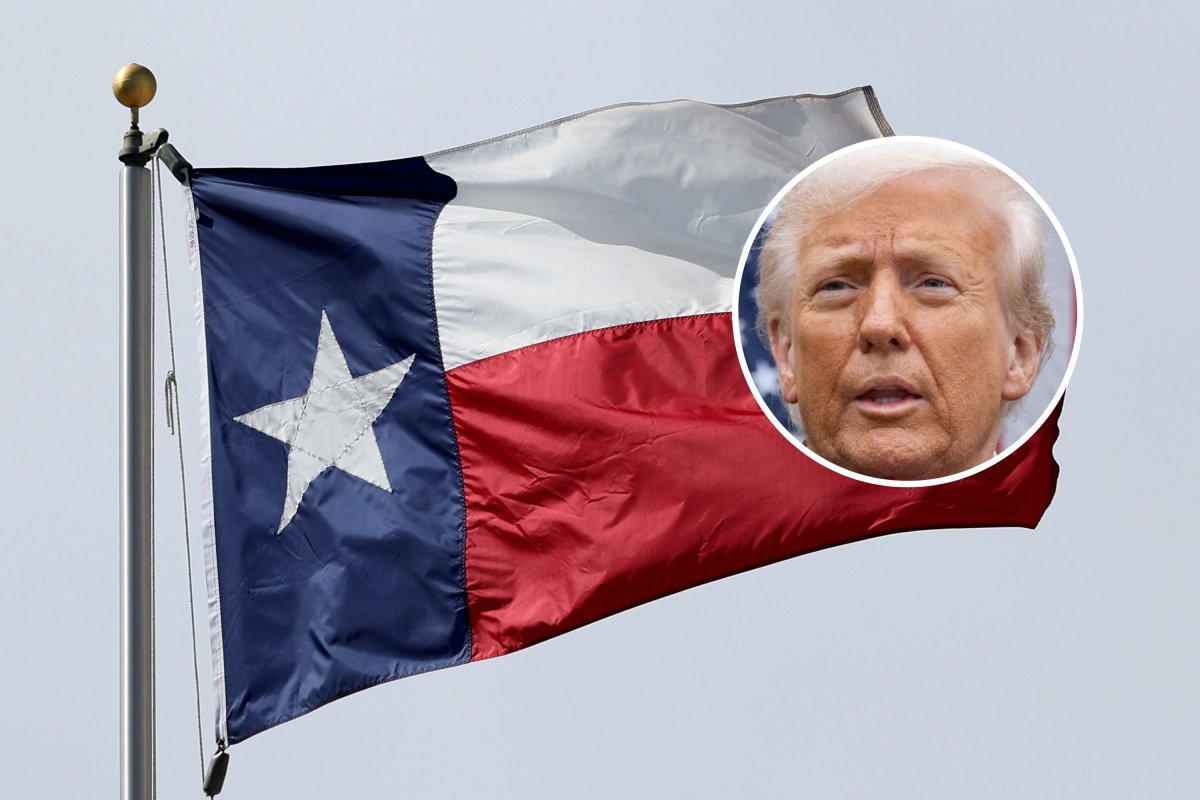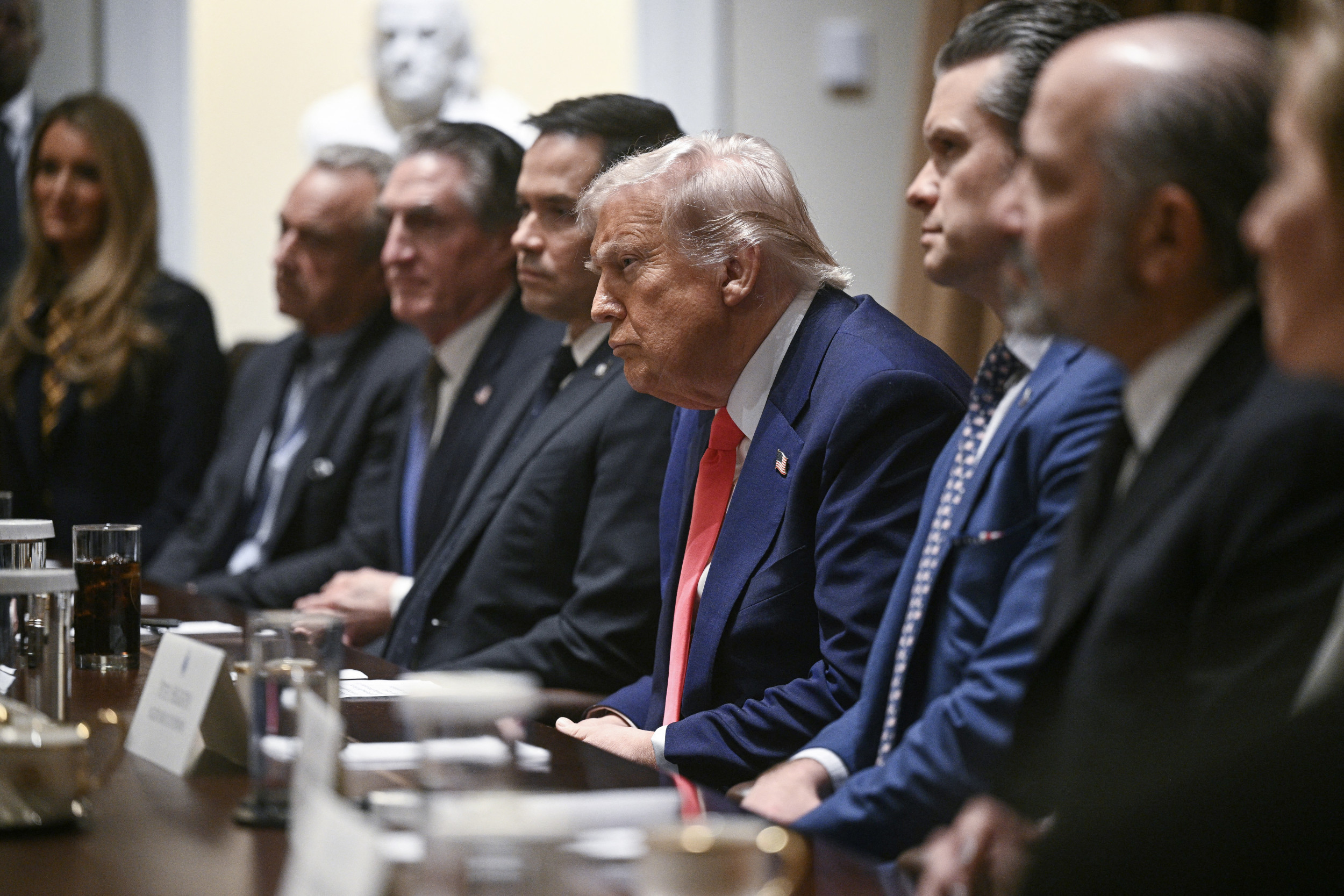🎙️ Voice is AI-generated. Inconsistencies may occur.
On Wednesday President Donald Trump dramatically hiked tariffs on trade between the United States and other countries, with credit ratings agency Fitch concluding they are now at their highest level since 1910.
Speaking to Newsweek Joshua Blank, who runs the Texas Politics Project at the University of Texas in Austin, said the Lone Star State is likely to "feel more pain than most" U.S. states as a result of Trump administration tariffs because of the important role foreign trade plays in its economy.
Newsweek contacted Texas Governor Greg Abbott for comment on Friday via email outside of regular office hours.
Why It Matters
In recent years Texas has enjoyed a thriving economy with GDP growth of 4.8 percent in 2024 according to the Texas Comptroller's Office, around three times the national average.
Texas is the state with the second largest economy in the United States, after California, and in 2023 would have had the eighth biggest economy in the world if it was an independent nation, according to the federal Bureau of Economic Analysis. Thus any change to the Texan economy would have a radical impact, not just in the state but across the United States.
What To Know
Wednesday, dubbed 'Liberation Day' by Trump, saw the announcement of extensive new tariffs including a "baseline" 10 percent levy on all imports, along with what the president termed "discount reciprocal tariffs" on dozens of countries. These rates included a 34 percent tariff on China, 25 percent on South Korea and 20 percent for the European Union.
While they weren't mentioned on Wednesday, shortly after taking office Trump slapped tariffs of 25 percent on all goods from Mexico and all Canadian produce bar the energy sector. He later announced a one-month delay for products complying with the United States-Mexico-Canada Agreement (USMCA) trade deal that he approved in his first term.
According to the Observatory of Economic Complexity, in 2023 Texas exported $486 billion worth of goods to foreign countries, the highest figure of any American state, while importing $384 billion.

U.S. Census Bureau Figures from 2021 show that Mexico was by some margin Texas' biggest foreign trade partner, with Texas importing $108.3 billion worth of goods from south of the border in return for $123.1 billion of exports.
China is next on the list, with Texas importing $34.7 billion worth of goods against $21.6 billion of exports to China, and then Japan, with $21.4 billion of imports compared to $34.9 billion in exports. On Wednesday Trump imposed tariffs of 34 percent on China and 24 percent for Japan.
Also in the top 10 foreign trade partners were Canada, Vietnam, South Korea, Malaysia, Germany, Taiwan and Russia. Of these only Mexico, Canada and Russia didn't have steep new tariffs introduced on Wednesday, in the first two cases because large tariffs had already been put in place by the Trump administration.
What People Are Saying
Speaking to Newsweek Joshua Blank said: "Texas stands in a unique position that likely means the state will feel more pain than most in response to some of the Trump administration's policies. Texas has a large, high-need population that is sure to feel the squeeze from Trump's effort to reduce both the federal workforce but also government services. At the same time trade plays a major role in the Texas economy given the state's 1,200 mile long border with Mexico, and any disruption to that is going to have an immediate consequence on the Texas economy.
"Despite the obvious exposure these policies create for Republican officials, there's no sense here, at least yet, that anyone in state leadership is pushing back in the interest of Texas—at least not publicly."
In February the Texas Association of Business said: "International trade is critical to the Texas economy, which is now the 8th and soon to be the 7th largest economy in the world, having already surpassed global economic powerhouses like South Korea, Russia and Australia.
"As the nation's top exporting state for 22 consecutive years, Texas thrives on robust trade relationships that fuel economic growth, support millions of jobs, and ensure the competitiveness of Texas businesses in the global market."
Texas Governor Greg Abbott's official website states: "As the top exporting state for 23 years in a row in 2024, Texas continues to be a leader in international trade.
"With its unique combination of strategic location, the largest U.S. rail and road infrastructure, the most U.S. ports of entry, a multilingual workforce twice the national average, a vibrant international banking center, a diplomatic hub with Consular Corps representing about 90 nations, as well as a concentration of corporate and financial resources, Texas is a global trade powerhouse."
What Happens Next
It remains to be seen whether Texas' disproportionate reliance on foreign trade will see it take an economic hit because of Trump's tariffs, or whether this will be outweighed by firms moving more jobs back to the U.S. as Trump intends. If there is a significant negative economic impact senior Republicans in the state will come under growing pressure to speak out.
fairness meter
About the writer
James Bickerton is a Newsweek U.S. News reporter based in London, U.K. His focus is on covering news and politics ... Read more




